If you read my Writing Tip: Why Writers Need an Online Presence Before the Book you understand why creating an online presence is a critical component for being an author in today’s technological world. Once you’ve accepted the reality of today’s writing world, the bigger question becomes: How do you create your online persona before you have a published book? That is what we are going to look at today.
Social Media
 The first experience most of us will have with building an online presence is probably with setting up a Social Media account. You probably already have at least one or more of the more popular ones: Facebook, Twitter, LinkedIn, Instagram, Tumblr, Pinterest. These are good places to start exploring meeting others because you can easily connect first with people you already know (family, classmates and friends). From there you can expand your audience to friends of friends and even go public.
The first experience most of us will have with building an online presence is probably with setting up a Social Media account. You probably already have at least one or more of the more popular ones: Facebook, Twitter, LinkedIn, Instagram, Tumblr, Pinterest. These are good places to start exploring meeting others because you can easily connect first with people you already know (family, classmates and friends). From there you can expand your audience to friends of friends and even go public.
Since we are writers, we want to write, and not spend too much time on Social Media. So I suggest you pick a few venues that best fit your personality, and you enjoy the most, as your primary way to connect with others. Start there and build your audience with posts that reflect your authentic self. It’s a great way to learn your way around and get familiar with being online.
The quickest way to learn how best to use a new Social Media venue is to watch how others use it and of course there are always “how to” instructions and videos available online. Remember to always be courteous. Take the time to thank people for sharing or re-posting one of you posts. They’ve taken time out of their day for you – show them you appreciate it.
Over time you will discover differences in how you use your different venues. I have a completely different type of audience (for my blogs & books) on Facebook than I do on Twitter, or LinkedIn. So I interact with readers on all three venues, but in different ways. And I enjoy them all for different reasons. Each of us will have to find our own path as to what works and doesn’t work for us.
Website/Blog
Think of your website as an extension of your business card. It gives you credibility and an online presence so important in today’s writing and publishing world. It also gives you a place to showcase your talents while you pursue your writing career, and start building an audience of readers long before the first book is published.
The most important point I want you to remember today is this:
Your website shouldn’t be about your books—it should be about YOU.
You are the brand. You are the face and voice of your brand. Your books are your product.
When you understand this concept, you begin to see how to build an online presence long before your books are a reality. You are a writer now, today, long before the books even take shape. This is the most difficult aspect of beginning a website and you should spend a good deal of time considering all the aspects.
We explored the first step of creating your online persona with some self-examination and by answering key questions in my Blog Writing Tip: How to Determine Your Online Persona Before the Book. Using this process, I was able to discover how to create my online persona years before my first book was published.
I’m sharing my thought process for creating my own website/blog online persona in hopes that it helps you understand the steps I took and find it inspiring for your own situation.
Example: I spend a lot of time in nature. Consequently, I find that many of my characters tend to be quite self-reliant or become that way during their character arc. They spend a lot of time in the wilderness and know survival skills. In that way my personal philosophy matches that of my characters. I constantly strive to be more self-reliant in my own life. It’s authentic to who I am. I realized this was a topic I would never grow tired of researching or writing about. And there is an almost endless supply of topics to choose from.
It became clear to me that it could be the perfect way for me to start a Website/Blog. On my website I shared my past and how I became interested in being more self-reliant. I shared my poems and short stories. And I Blogged about all kinds of topics that fit into that self-reliant heading. I attracted other readers interested in those topics. When my books were published, they were added to the already existing website. And I already had a built-in audience of readers who would probably enjoy reading about my characters and their stories. And that’s what this is all about.
But even with a vision where do you start?
There are many different ways you can go about getting a website, from building your own, hiring a professional to do it for you, or having a knowledgeable friend help you. And there are just as many different CMS (Content Management System) choices to consider. A Content Management System (CMS) is an application that enables you to publish and manage content on the web in an intuitive fashion, such as WordPress, Joomla!, Drupal, and many others.
The first step in getting your own website is to create and register your Domain Name. This will create the unique url identifying your website, such as mine: indyquillen.com There are many services for registering your Domain Name, including GoDaddy, or the web hosting company where your website will be hosted usually offers this service as well. Which we will talk about next.
Besides picking out a CMS for building your website (or using what your developer suggests) you will want your website to be hosted with a web host. This means you will be paying a service to host your website on their servers. This way all the search engine “juice” generated through online browsers will go straight to your website and help build your page status online, rather than say WordPress. The better your status, the more people will see you, and the more activity you’ll receive for your site.
Besides being an author, I also have a business doing website creation. So I have my own personal preferences – which may or may not work best for you. I like using WordPress to build websites for clients for the fact that I can easily train my clients on how to use and maintain their own website – if they so want. And one of the many advantages of WordPress is that is comes with a blogging function built into it.
The number one reaction I get at this point is:
What if I Don’t want to Blog? What is the Big Deal About Blogging Anyway?
Number One Reason: Simply having a Blog on your website (with consistent new content) drives lots more traffic to your website than not having one. Search engines love new content. Blogs are an easy way to constantly add new content to your website. Over time this helps build your page status. Which makes your pages come up more often during online searches.
Reason Number Two: Blogging gives you a platform so you can start building your reading audience before you even have a book. As I shared earlier, I started blogging years before my books became a reality. I blog about my self-reliance life-style which happens to coincide with that of my characters in my books. Now I have a large audience of people who regularly read my Blogs. Think some of them might like my books? And as I share my Blogs on Social Media, such as Facebook, Tweeter, LinkedIn and Pinterest I reach another audience of potential new readers for my Blog—which takes them to my website, where, guess what—there resides my books.
Reason Number Three: Blog posts are “out there” forever. Most of my Blogs are written to be timeless so that I can regularly re-purpose old Blog posts, and constantly garner new readers who are just now finding my Blogs and my website, via online searches for related topics and through Social Media. And yes, they sometimes buy my books as well.
Reason Number Four: I’m a writer. That’s what I do. Learning to Blog let me find my own writing voice—not the one I use for fiction novels, or short stories or haiku poems—just me.
It allowed me to “color outside the lines.” Along the way I learned a lot about creating headlines that grab attention and how to format copy so it’s easier to read, or skim and get the highlights. These are skills that have helped me with marketing and books sales. Who knew?
And as writers, shouldn’t we always strive to learn new skills and expand our knowledge?
If you are still convinced that Blogging won’t work for you then I hope you will at least consider using the Blog function on your website in other ways. You could create a News & Events page that relates to the genre you write in or activities you attend. Or perhaps you could interview other authors who write in your genre (thus connecting with potential future readers).
Get your creative juices flowing and find your own way to take advantage of this function, which will encourage search engines to your site. Plus, it will give you something to share on Social Media, which will bring readers to your website – where your future books will reside.
Special note: Here is where a lot of writers decide to Blog about writing. One word of warning: the purpose of blogging should be to build your audience, including readers who will want to read your future books. Unless you are writing a book about writing, why would your future readers be reading about writing? I suggest you force yourself to think beyond the simple answer and find a way to connect on a deeper level with your future readers.
Beyond the Blog Page
Websites can be as large or small as you want or need. Small budget? Don’t be afraid to start small and build out the website as you save more or have more content to share.
In fact, it’s best to think of your website as a living, breathing entity. One that will need to grow and expand with the years. The design and function may change as your needs change – and they will—once you have books to put on it!

But it’s nice to have some guidelines, so here is the minimum amount of info I recommend you try to include on your website in some way, whether it’s as pages or sections on a long splash page. You can expand it from there, as needed.
Home page: Sometimes this is called a Landing page. Many writers use their Blog as their Home/Landing page until they have books to share. Once they have a published book(s) they create a Home page that serves as an introduction to the website and the Blog becomes a separate page on the website.
The Home page can be a place where you introduce yourself and invite readers to explore your website, sign up for your Newsletter and check out your Blog. Make it personable, or humorous or sarcastic—make it you. This is your chance to connect with your future readers.
About You page: Make sure you include a page on your website that gives the reader some insight into who you are. You don’t need to reveal any more than you feel comfortable. But remember that readers today want to feel like they know the author of their favorite books, far more than they did in the past. They would love to learn that you have a similar hobby or interest, how you came about becoming a writer, where you get your ideas and what projects you are working on.
Creative page: You’re a creative person. Don’t be afraid to share some of your art or writing on your website. Share any poems you’ve written, or short stories, articles or an essay. Or maybe you enjoy photography – share some photos. Maybe you paint, do pottery, woodworking, or like to garden. As your book gets closer to publication you can share a Sample Chapter to get readers excited. The more you share with your readers, the more they will find ways to connect with you as a person – and become a future fan of your books.
Blog: If you don’t use the Blog as your Home/Landing page, make sure you have a separate page for readers to check out. It helps to have a theme for your blog and a brief Intro at the top so readers understand the topics that will be covered in your Blog posts. Make sure you offer an opportunity to subscribe to your Blog as well.
Contact Page: make it easy to contact you via email, and make sure to include linked icons to your Social Media venues so they can quickly connect with you there as well.
Don’t be afraid to stretch your creative muscles on this and truly find your own path to your online persona. The only rule is – there are no rules. What works for one person won’t work for you. Don’t be afraid to be unique!
Yes, creating an online presence is a big deal. It’s going to take time and research and hard work. But anything worth the effort does, right?
So set some goals and outline the steps to achieve those goals. Take baby steps if necessary. But do get started!


 Being outside in nature is the most basic part of who I am. Besides gaining knowledge about wildlife, I learn lessons about who I am, and surprise myself about what I am capable of achieving. Nature continually inspires me. It is a part of all my writings, no matter the genre or subject matter.
Being outside in nature is the most basic part of who I am. Besides gaining knowledge about wildlife, I learn lessons about who I am, and surprise myself about what I am capable of achieving. Nature continually inspires me. It is a part of all my writings, no matter the genre or subject matter. 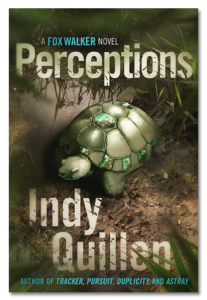
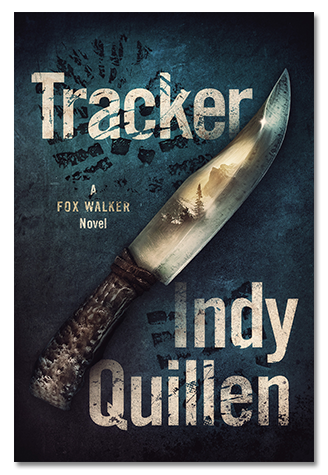
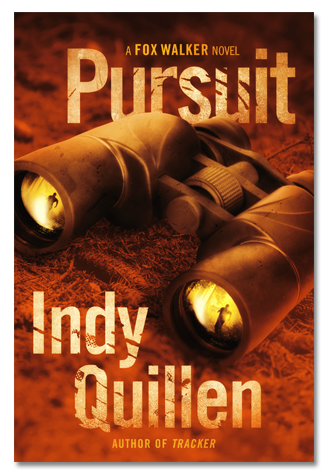
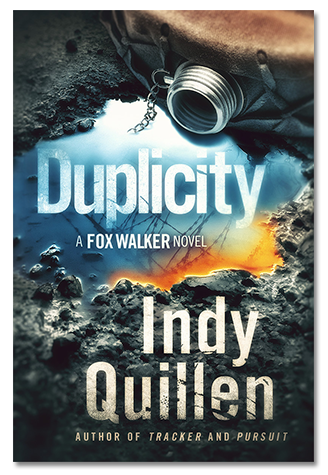
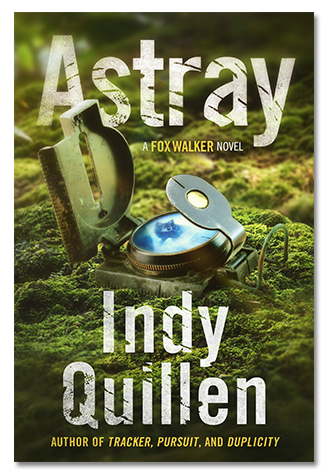
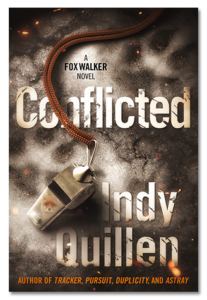
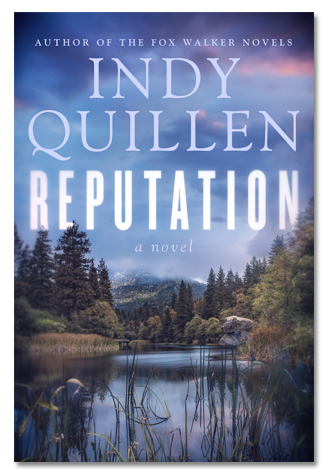
Excellent post!
Thank you, Sherrey for reading and commenting. I appreciate the feedback!